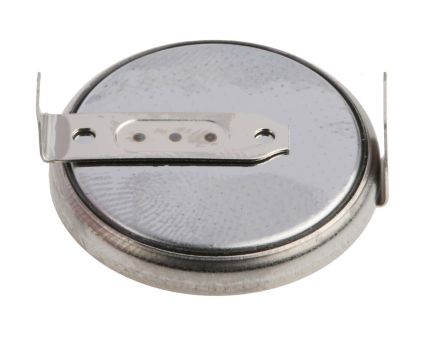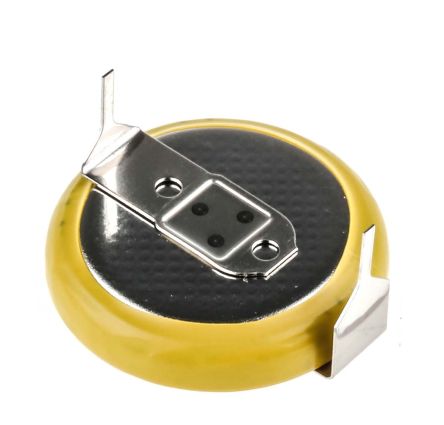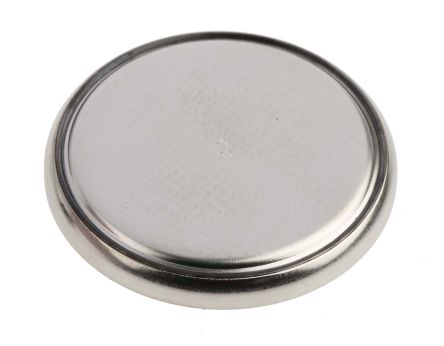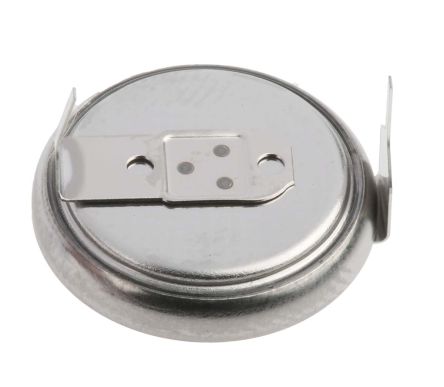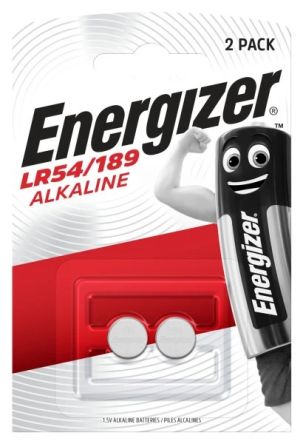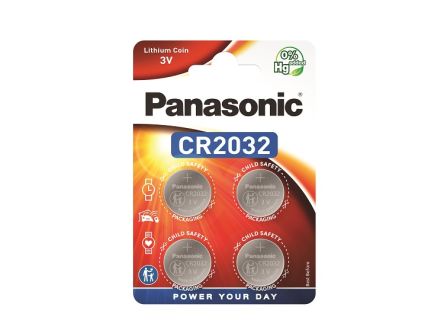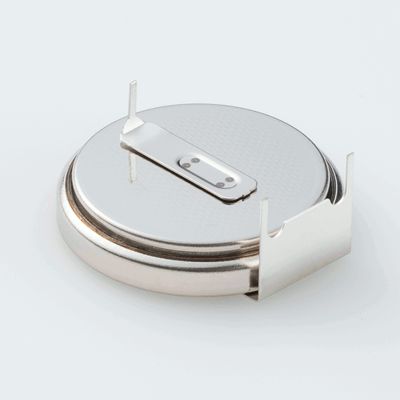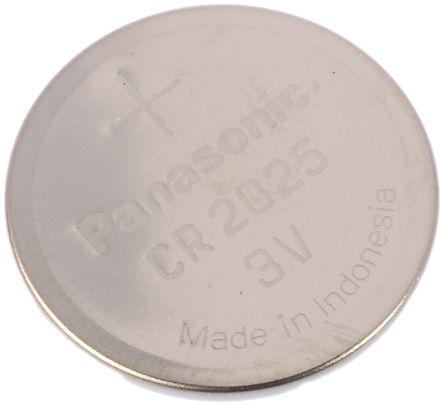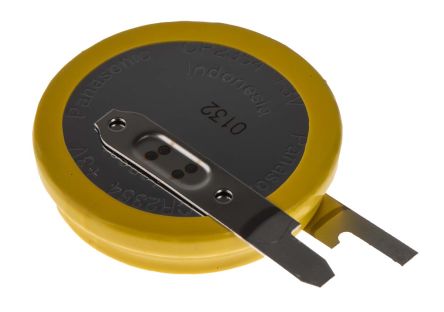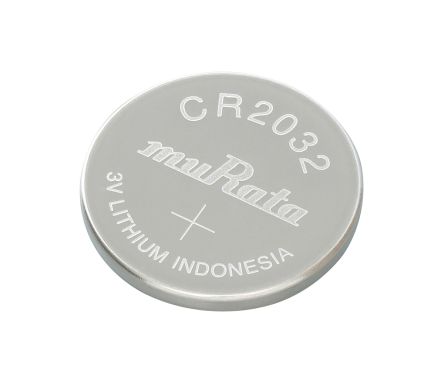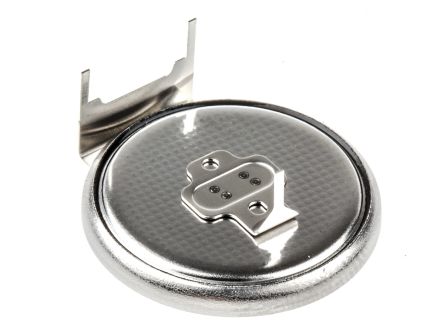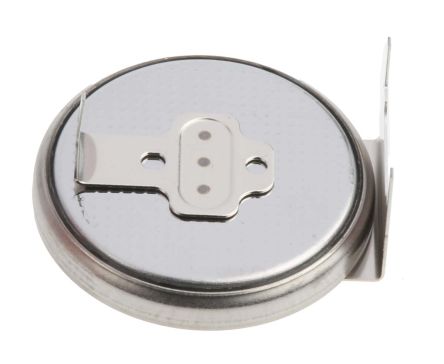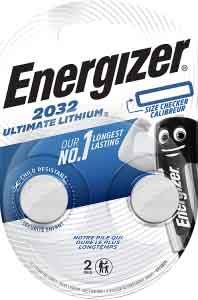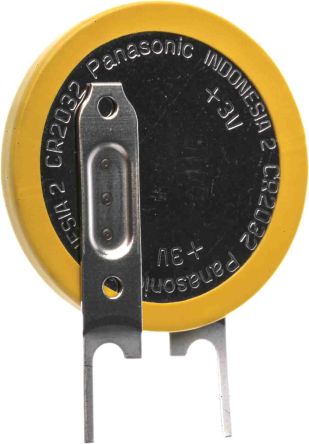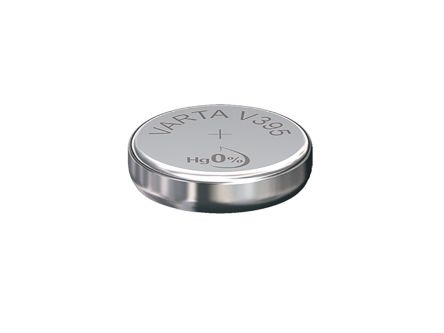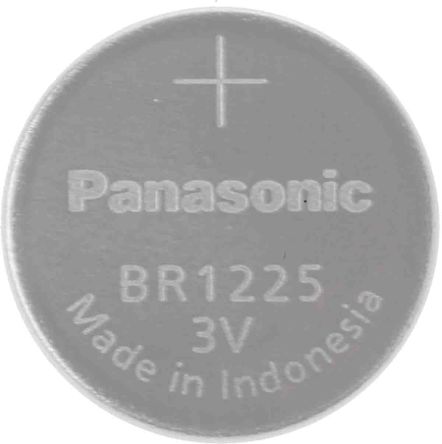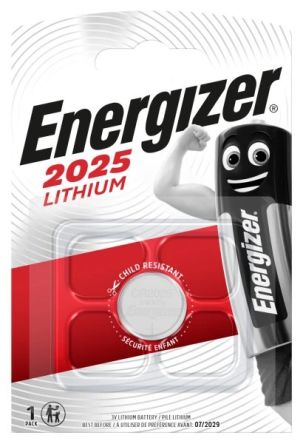- Automation & Control Gear
- Cables & Wires
- Enclosures & Server Racks
- Fuses & Circuit Breakers
- HVAC, Fans & Thermal Management
- Lighting
- Relays & Signal Conditioning
- Switches
- Batteries & Chargers
- Connectors
- Displays & Optoelectronics
- ESD Control, Cleanroom & PCB Prototyping
- Passive Components
- Power Supplies & Transformers
- Raspberry Pi, Arduino, ROCK, STEM Education & Development Tools
- Semiconductors
Button Batteries
Button batteries, also referred to as coin cells, coin batteries or button cells, are circular, non-rechargeable batteries. They are used to power electronic devices, such as clocks, remote control toys and wristwatches.
Sizes:
The most common naming standard is from the International Electrotechnical Commission or IEC. This typically consists of 2 letters, followed by 3 or 4 numbers.
The first letter defines the chemistry:
- L – Alkaline manganese dioxide
- S – Silver oxide
- P – Zinc-air
- C – Lithium manganese dioxide
- B – Lithium carbon monofluoride
- G – Lithium copper oxide
The second letter defines the shape:
- R – Round
- F – Flat
- S – Square
- P – All others that aren't defined as round, flat or square.
The numbers that follow the letters reference the diameter and the height. If the number ends with 1025, the battery has a 10 mm diameter and a 2.5 mm height.
Applications:
Due to their size, button batteries are used for smaller electronic devices. Standard domestic applications include watches, scales, remote controls and calculators. They can be found in greeting cards, and are used to power small LEDs or speakers within the card.
Coin batteries can also be used to power medical devices such as hearing aids, implantable defibrillators and pacemakers.
Which battery should I use?
Coin batteries have a very long shelf life. They have low levels of self-discharge which means they are able to hold their charge for a long time without losing any power. Coin cells are constructed with 1 of 3 types of battery chemistry. This can help you to choose the most suitable battery for your application.
Alkaline button batteries:
These are an economic solution as they are cheaper than lithium or silver oxide batteries. They do not maintain constant voltage throughout their lifespan like other batteries do. This means that the voltage drops consistently and they typically last half as long as lithium or silver oxide batteries. They have less capacity than silver oxide and lithium batteries.
Silver oxide and lithium button batteries:
Lithium and silver oxide coin batteries have stable voltage throughout their lifespan. Unlike alkaline batteries, they are subject to a drop in voltage quite suddenly as they approach end of life. They are more resistant to corrosion and have better leakage resistance. The main difference between silver oxide and lithium batteries is the voltage. Lithium batteries provide voltage of 3 V while silver oxide batteries offer 1.5 V.
